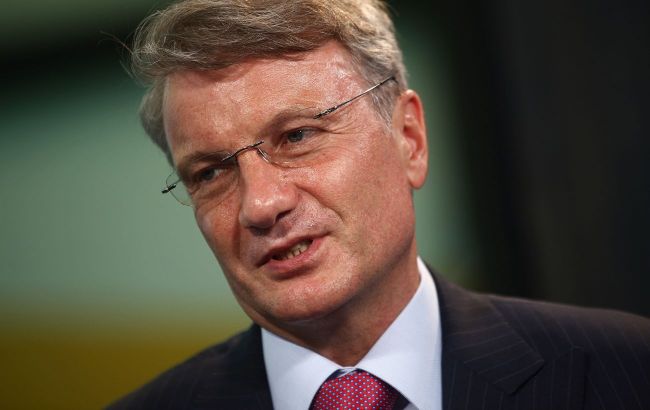Russian economy hits zero growth, Sberbank chief warns of stagnation
 Photo: Herman Gref (Getty Images)
Photo: Herman Gref (Getty Images)
Russia’s economy effectively stalled in the second quarter of 2025. A state of technical stagnation is being observed, the news agency Interfax reports.
“The second quarter can essentially be considered as a technical stagnation. July and August show quite clear symptoms that we are approaching zero levels,” said Russia’s Sberbank CEO Herman Gref at the Eastern Economic Forum in Vladivostok.
Gref noted that this was caused by a combination of geopolitical factors, ruble exchange rate fluctuations, and a drop in commodity market prices. As a result, business activity has slowed down.
Role of key interest rate
Gref emphasized that the main factor constraining growth remains the Central Bank’s key interest rate. Currently, it stands at 14%, and this level is insufficient to stimulate lending.
In his assessment, economic recovery is only possible if the rate is lowered below 12%. Otherwise, the risks of recession, i.e., economic decline, will increase.
Gref stressed that even more important than the nominal rate is the real interest rate, which is currently one of the highest in the world in Russia.
Credit forecast
Sberbank CEO also reported that the loan portfolio may return to growth only in the second half of 2025. To achieve this, a monetary policy easing of at least 200 basis points is needed.
He emphasized that the high cost of borrowing negatively affects both businesses and consumers, limiting investment and reducing demand.
Economic outlook
According to Gref, the Russian economy remains under pressure from numerous factors. Among them are sanctions, uncertainty in global markets, and rising business costs.
Sberbank CEO warned that without adjustments to financial policy, the economy risks getting stuck in a stagnation zone for a long time.
Forecasts
The International Monetary Fund (IMF) expects that after two years of war-fueled boom, the Russian economy will return to its usual state of stagnation and will continue falling behind both developing and developed countries.
According to the IMF’s July 2025 forecast, this year the growth rate of Russia’s GDP will slow to 0.9%, and to 1.0% in 2026. In 2024, growth was 4.1%.
According to recent estimates, Russia is spending half of its national budget on the war against Ukraine.
US Energy Secretary Chris Wright believes that the introduction of sanctions against Russian oil to stop the war in Ukraine is a “very real possibility.”
Economic stagnation is a situation where economic growth is virtually absent or very weak for an extended period. During this time, levels of production, employment, and income do not increase, and the economy does not develop.
A recession is a sharper and more noticeable decline in economic activity, usually measured by a drop in GDP.

